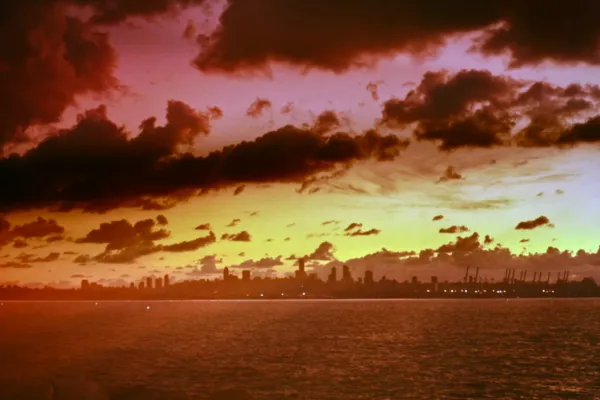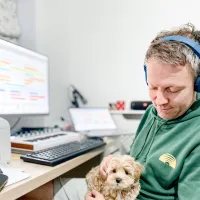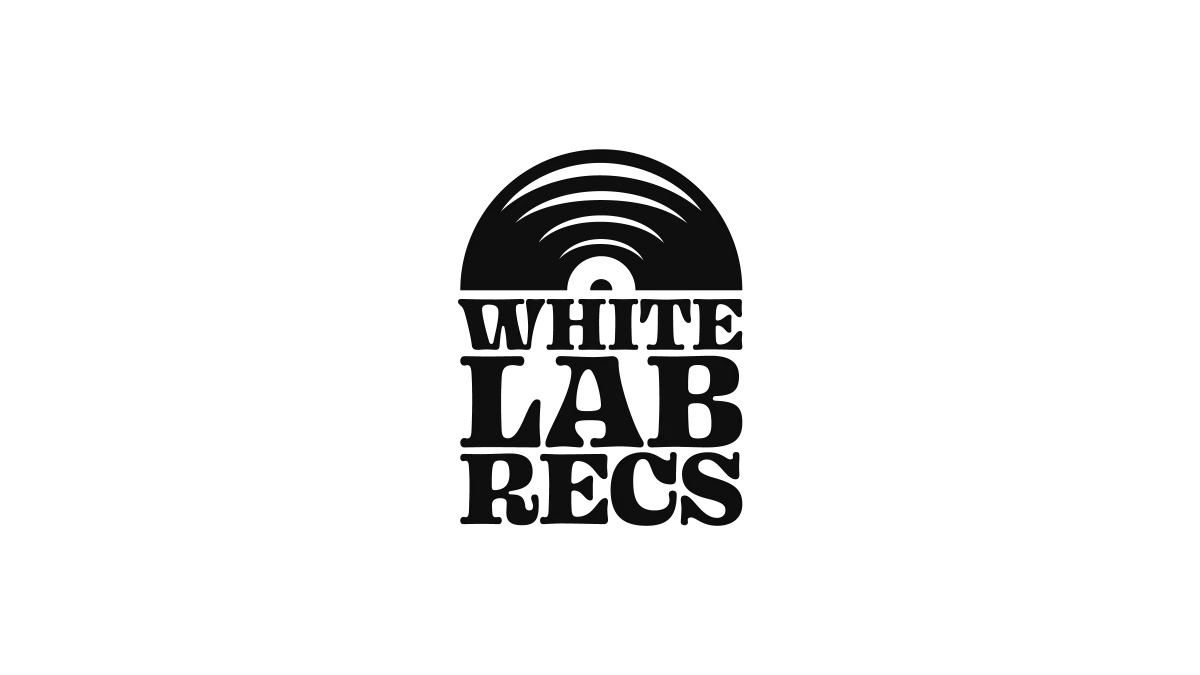Whitelabrecs Blog

In Another Country, a film by Ralf Moussa
I've had many occasions over the years running record labels and music projects, where visual artists and creatives get in touch and we work on something together. One such is Lebanon-based cinematographer Ralf Moussa whom I met earlier this year. We've been chatting a lot lately and he's created a wonderful short film with music from the recent album by Henrik Meierkord and Knivtid. We decided to make a blog post primarily to share the trailer for the film. But like most things when passion and creative drive take over, we decided to turn it into a detailed interview! Read on below to see some insight from Ralf on what it's like to be a cinematographer, with some questions about the situation he faces in his homeland right now, his background and how he got into his work, and of course, some questions on music too!
HT: Hello Ralf! Firstly, could you talk a little about your background in cinematography? How did you get into it and when?
RM: "First of all Harry thanks for having me here, it’s always a great pleasure collaborating, and sharing references and insights with you. Well cinematography means in ancient Greek to paint, draw and write at the same time. To capture motion. Briefly, I can’t really tell when and how my eye got so interested in capturing colour, light and motion all together. In a way, cinematography somehow calls you and you don’t force yourself to it. But somehow during my film studies, I’ve been exposed to a wide range of the visual arts. From painting, to films, film/art theory, installations etc
On the side from my academic pursuit in cinema I was always doing camera department technical gigs from Commercials, to short films, all the way to the finest critically acclaimed Lebanese feature film productions. I've been a cinematographer behind more than twenty short films and a feature film. Wanting to be a cinematographer/free thinker into any discipline here means literally any opportunity to be around a professional crew and high end equipment to eventually learn the craft, which helped build my cinematographic vocabulary for the thought process to become adequately translated into a body work without facing any technical barriers. I’ve never decided beforehand to become a cinematographer in particular, but as I mentioned before the medium calls you and not the other way around.
In terms of influences, I've been exposed to the works of Andrei Tarkovsky, David Lynch, Ingmar Bergman, Coppola, Mikhail Kalatozov, Stanley Kubrick, Werner Herzog, Bela Tarr, Ousama Mohammed, Akira Kurosawa and some newer waves like Aronofsky, Alejandro González Iñárritu, Roy Andersson, Ziad Doueiri and others… Even painters like Raphael, Van eyck, Van Gogh, Renoir, Monet, Rembrandt, Caravaggio… And also cinematographers like Sven Nykvist, Nestor Almendros, Gordon Willis, Hoyte Van Hoytema, Emmanuel Lubezki and of course Vittorio Storaro, stand as a pillar in how I look at the craft. And the list goes on for the simple reason that capturing the light could be inspired by a wide variety of influences, but I particularly tend to name it the ‘’cultural fountain’’ because influence by itself ain’t enough in our times to draw a visual explorer’s identity.
The aesthetic experience is like a well, that you add to and extract from. As Nietzsche describes it in Ecce Homo handing all the credit in what one does to external figures of all kinds, could identify as ‘’hailing’’ or a pure act of worship that cuts the being from reaching their higher potential.
HT: What inspired you to make this film, and what is the core message you hope it conveys to viewers?
RM: "Well, I really try avoiding to put my work under the ‘’message’’ or ‘’statement’’ label directly or I find it too imposing. In one way or another we’re in an age where everybody with a device in their hand are messaging and sharing pictures/generating statements in billions by the second. So my work tends to explore an experience first and above all that communicates the very tiny moments of contemplation that are available in such a condition like war, or political tension. The themes in my work take more of an exploratory sense of experiencing the cinematographic experience or more simply put, the Image / Sound communication. But speaking about this film it was mainly motivated by a book by Mare Kandre that Knivtid had shared with me called 'In Another Country'. And as the tensions in Lebanon started to grow, I perceived this as an opportunity not to take an average bystander percept and get drowned in all the misery this war could offer to someone working in the arts. It is my type of resistance so to speak. Afterall, the work says it all…"
HT: What do you hope that the wider international audiences will take away from watching this film?
RM: "The film has its intimate purpose that vaguely inclines towards both aesthetic and conceptual research. But it could also sparkle with a different take on what’s actually happening, without taking focus directly on the war in a way a news reporter would, or the way a random person with a smart phone reacts on social platforms to the atrocities being committed to our land. You know anything that stands forcefully as dualistic, is by itself a falsehood. So I won’t push this piece of work under the bus of it either being pro or against a certain take. The international audience has to take away, but I’d rather stick to my own way of seeing things as these happenings could be found to seed for confusion amongst the public opinion. The international cultural community is always awaited to have an evolved and progressive different opinion, therefore I invite different views to be taken round the piece although mine is private and that’s how I’d like it to be. The film should speak to me before all else."
HT: What challenges did you face filming in Beirut under these circumstances?
RM: "Listen Harry all you gotta do is listen. Though now that you mention it, making a film by itself is already a difficult task to accomplish especially with an abundance of information, interests, technicalities and workflows. All of this could also go unnoticed when trying to accomplish such an endeavor without any ‘’funders’’ or financial support, add to all of this a state of actual war blowing through the country and more particularly my hometown, in the Southern district of Lebanon. Which actually brings me to say, that I personally hope this piece of work could draw as little attention as it could, for the eyes of the international cultural community to a fundamental issue a creative or a well-formed technician in such situations could be facing. As it’s a matter of endurance, I had to play with my sense of assessment on the actualities around me. On how much risk I am willing to take to have the shots I need… Shortly, one has to be strong physically and mentally to accomplish a film in these particular times."
HT: Can you share some techniques or decisions you made as a cinematographer to convey your message?
RM: "Hahah I’d like to keep that as my secret recipe! Joking…That’s the type of question I imagine I’d either write long paragraphs about, or simply escape by saying in both my technical and creative practices, I tend to be consistent on doing camera tests, experimenting different techniques and watching lots of master cinematographers and visual artists laying their say on certain framing styles, colour theory and others. Afterall as I’d like to put it, a cinematographer is at their foundation a researcher; an eternal student. So why discuss the techniques and equipment when I am offering the very output… But to cut it short, it’s a process that holds to a docu-fiction style I've been trying to develop lately. I can’t say no more, for this style is still under some development. Fair to say the most fun thing to play around with as a cinematographer, is to accurately choose the shooting times, and see if what I’ve imagined in my head has matched the light amount in the results and meets my safety and equipment around times where holding a camera is much like holding a gun pointed to an oppressor’s face."
HT: What role does light, sound, and setting play in shaping the mood of your work?
RM: "Allow me to quote Vittorio Storaro by saying: "Light, well I think light is knowledge, knowledge is freedom, freedom is love, love is energy". Aside from cinematography having the light as it’s main ingredient. Light is the very reason humans can see, which also took agent in Plato’s cave example, took example in the fires that lit a drawing by a primal being of Man and Buffalo on the cave’s walls as they watched the shadows from the fires moving, micro-motion was noticed. As if cinematography came to life way before the camera or movie screen had been invented. As one who stands in the dark times naturally aims to seek the light. Though academically speaking light and sound are treated as different departments and disciplines in cinema. I have the tendency in my works, to study this light/sound relationship. On the macro scale, we live within a solar system, our whole life on this planet depended on a certain distance from that huge burning star. That if we’ve come too close we’d burn to death, a bit too far our consciousness will freeze. What ties me to the light, is basically a state of transformation, of a visual state over a period of time and most importantly balance between aesthetics, technique and organic philosophy on how light and shadows draw the life around us. Like literally a day, or the cycle of seasons. How nature extends itself as a force majeure, without it actually putting the effort to be noticed. You could spend your day functionally busy, and not have the time to acknowledge that we live on a spherical planet that is spinning around another huge lit star. Which causes us to see the shadows moving around a given object, face or surface. Which creates motion even in absolute states of stillness. In the same way sound could be traveling across a camera frame. And the very trajectory of these two elements on a timeline constitutes the very fundamentals of mise en scene which is the best way I could describe what you referred to by setting play."
HT: How does your background living in Beirut influence your work as a cinematographer, both before and during challenging times like these?
RM: "Harry, as I’ve mentioned before, Beirut is much of a busy place, very chaotically organised. While one of Lebanon’s most known clichés is how fast one could shift from the mountains to the city. Ever since the Beirut Port Explosion happened in 2020, the Lebanese current state is a pretty abstract example of how a time machine works. I don’t find myself forced to wear patriotism on my words, as it sneaks into my works seamlessly. Beirut means much to me, especially during winters, also the South. Both areas being under critical unfortunate events during the making of this film. I think that handing this or that political party the blame for such a harmful doing, somehow overlooks my personal relationship with these two areas which are basically where I’ve become who I am now. That I don’t really care who started it, the political panorama in general in Beirut is always undergoing updates. But on the other hand of the spectrum, Beirut is in its nature an embracer of her indigenous creatives. Entitled ‘’Sett al Dunia’’ which translates to The "Lady of the universe". Which somewhat pushes me to interpret Beirut as a lady with a tiny scarf round her neck with a bowtie knot.
My works till the present day always come across notions from how this city actually functions. A city told to have drowned 7 times under the sea and floated back on. An undying Atlantis of sorts. With numerous civilisations that contributed to the current state of the country and the region. This place has always something to offer in both peace and war. But allow me also to mention that the collective unconscious in Lebanon is kinda hurt. The constant turmoil imposes a sense of conflict that isn’t necessarily there outside the perimeters of the political polarity. For that reason these times distinguish the fittest from a conformist. If you allow the general trauma like an explosion or a war to take tall and sneak into your psychological foundation and change truths on how you perceive yourself and your craft, you’ll fall victim of a propaganda that has been applied on our part of the globe for ages. Therefore I always identify with Beirut as for being not a muse syndrome, but a poetic cultural model that must be conserved from the filth that the successive traumas could be attempting to affect. Thus, again when any state of conflict or crisis blows into the country I find my best resolution in taking action, exploring the craziest of outcomes through my optical medium. Taint the greater landscape in hues of my choice."
HT: Why did you select music from I ett annat land to accompany the film, and how do you feel it contributes to the narrative?
RM: "Well a while back one of Henrik Meierkord’s albums was sitting in my Bandcamp wishlist. Until I decided to contact him to take permission to use one of his sounds on a documentary I was working on. Right after that, a long collaboration of sorts started between us. Up until he told me he’s onto something with Knivtid. As the name sounded familiar, I opened my library and found the very first EP of his there from 2017. It’s well to mention that Knivtid's sound is very rich in subtle synthesis, brief sonic sentences, and when we started talking he shared with me Mare Kandre’s book 'In Another Country', A Swedish prose poet who lived reflecting at her homeland from abroad. In a way, I’ve also shared another book and we started throwing ideas around. But when I started listening to the master recordings, I imagined it to speak a Nordic folkish landscape. That threw me back into a state of peace Lebanon was in before all this political collapse started. Which already made me suggest going for a short film format with a twist, rather than straight ahead just visuals over the music. The album is a brilliant passage of cello and synth but the only track I’ve used in the film is the album self titled "In Another country". But the track named "Olden" comes as a brilliant landscape of sound and color and it’s my personal pick off the album."
HT: Were there specific themes in Henrik Meierkord & Knivtid’s music that resonated with the visuals?
RM: "As I previously mentioned, the landscape element that I’ve spotted in the album sneaked seamlessly into some of the film’s core element. Cellos are usually a great accompaniment to film and cinematography. But somehow there’s this module in Knivtid's synthesizer that sounds much like a French horn or a sustained bassoon that resonated with the film’s visual the most. Since I like extended long takes, I find bowed strings something very organically close to a film’s visual language, as it plays around notions of tension and release just like a film’s mise en scene."
HT: Do you find that music holds a special role in conveying emotion or bringing stories to life in your films?
RM: "Well that’s one of the most discussed problematics in cinematography and film theory from the very pioneers till this day. Could the music become dominant to the picture or could it absorb the importance from any on-set sound mix? To me music especially if over done, overly given a place in the mix of a film sound could harm the film’s sense of engagement. Because you know, sometimes what goes best on a shot is simply the wind hitting into the ear drums. Sound in films ain’t just to evoke emotion, but to accurately describe the space, try to deliver an honest translation of the space being imagined by the filmmaker. But here exactly is why I tended to build collaborations with Ambient artists in the past year, for the reason that Ambient music especially could to an extent go along whatever has been recorded. Adding to that in today’s Ambient scene you could find lots of tiny details of found sound and field recordings that could resonate much in enhancing a film’s discourse with the audience."
HT: Are there any artists you particularly admire and have an influence on your selection process, when producing your films?
RM: "As a matter of fact, I am as keen on discovering new sounds as I am discovering new films. I always felt the tendency to find new music online, it’s one of my coffee routines before heading to university or to film set. I am personally attracted to a wide variety of sound genres. After listening to Tim Hecker on the Red Bull Academy show, I’ve got hooked into the Ambient "zone" rather than genre. I really admire the works of Fennesz, Ryushi Sakamoto, William Basinski and Nils Frahm. There’s also an Ambient guitar guy named Kyle Bobby Dunn; that man’s sound is really high on craftiness and sensitivity. I am currently trying to reach him for a collaboration. There’s also the cellist who composed Werner Herzog’s "The fire within" score, Ernst Reijseger. You know Herzog as a filmmaker is known for his refined taste in scoring choices. Also Kali Malone’s work, maybe some Aphex Twin and Rafael Anton Irisarri is also amongst the stuff I put on in the background when reviewing camera work, doing tests. Without overlooking Henrik Meierkord’s work besides our collaboration and friendship, the guy’s obviously a string virtuoso how he seamlessly handles the phrasing the context and his bow always finds a way into resonating in feel and uniqueness."
HT: If you had to choose 3 Ambient (or closely related to Ambient) records that are most dear to you, what would they be?
RM: "That’s a really hard question to squeeze my choice into only 3 releases but I’ll try
William Basinski’s Disintegration loops. Well this album is the best way to illustrate times of catastrophe.
Ryuichi Sakamoto - The Revenant (Since we discussed music for film)
Tim Hecker’s albums Konoyo, No Highs or Haunt Me, Haunt Me Do It Again.
Allow me to add Henrik Meirkord’s Proscenium. This album has a valuable place in my library."
HT: Do you see your film as part of a broader conversation about Beirut’s present and future? How can audiences engage further after watching, whether this be through helping directly or through further education?
RM: "As I mentioned above, I don’t like to push my work under the bus wearing a single statement though it holds to one. But I definitely see it as something that communicates different timelines not to spoil anything. The film itself will reflect upon the viewers in terms of engagement. But since you mentioned education, that’s mainly the lifeboat a city like Beirut has up its sleeve. Beirut was always known to be a pioneer in the region and the world especially in the education field. Afterall "When the educator fails to liberate the oppressed dream is but becoming the oppressor".
Here are some projects where Ralf has been a technician:
The Insult by Ziad Doueiri
Broken Keys by Jimmy Keyrouz
The Sea Ahead by Eli Dagher
And as a cinematographer:
Disce Series - a short film cinematography study in a sequel form, that interprets the introduction of artificial intelligence into our lives as humans on the public domain and also the inter-human connection within this phase, natural intelligence, memory and mostly the causality and effect of the asynchronous nature of modern cinematography.
The Battle of the Cedars a documentary directed by Laurent Sorcelle
Above the nest by Georges Hazim
Saros 134 by Maya Dagher
Mosaic Of Time, A journey into the works of Andrei Tarkovsky (2024), Zicohouse Beirut A solo film installation.
And most recently, a series of visual collaborations with different ambient labels like Whitelabrecs, and also there's a big thing being cooked in the shadows that I'll consider unveiling soon.
To all the readers, in the middle east and the rest of the world stay safe, visit my website for more references about my work and do not hesitate to contact me via email or drop a follow on instagram for any questions and inquiries.◼️Ralf Moussa
You can follow Ralf's work in the following places:
Website
Instagram
If you'd like to learn more about 'I ett annat land' by Henrik Meierkord and Knivtid, you can check out the album HERE or click the player below:
join the community...
get a free 12 track compilation album
be the first to hear the label news
get behind the scenes exclusives
a chance to get involved



